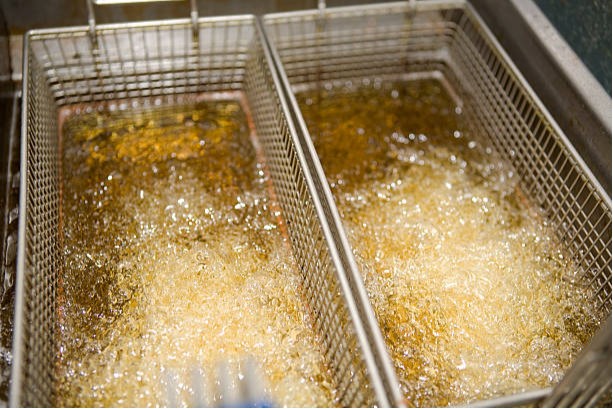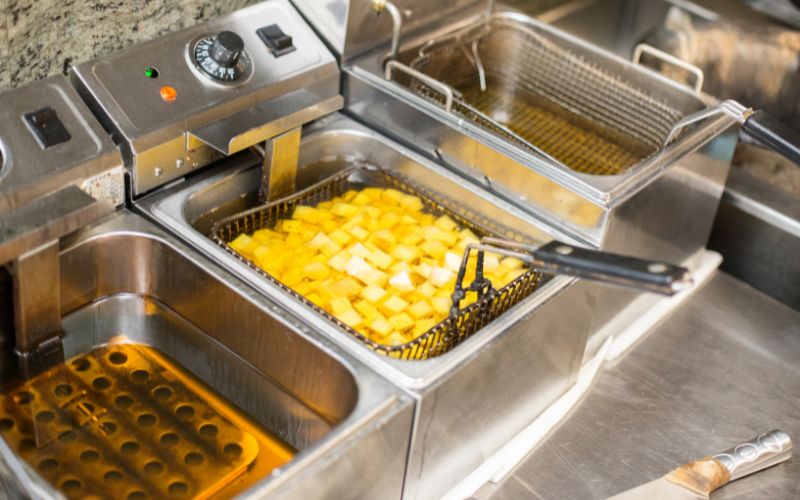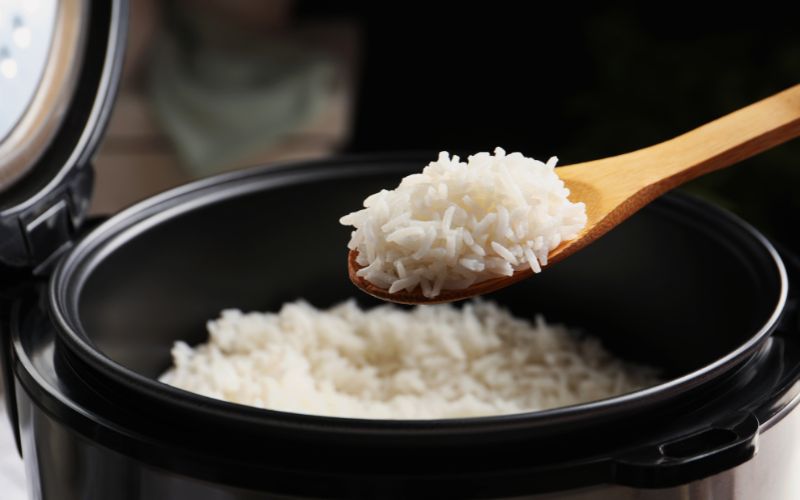The Importance of Choosing the Right Oil for Your Deep Fryer


Deep frying is a cooking technique that involves submerging food in hot oil to cook it quickly and give it a crispy exterior. This technique is commonly used in commercial kitchens, with deep fryers being a staple appliance in many restaurants and fast-food establishments.
However, not all oils are created equal regarding deep frying. This blog post will discuss the importance of choosing the right oil for your commercial deep fryer.
Importance of Right Oil for Fryer
The oil used in your commercial deep fryer can significantly impact your fried foods' flavor, texture, and overall quality. Using the wrong oil can result in greasy, soggy, or burnt food that doesn't meet your customers' expectations.
Additionally, using the wrong oil can also impact the lifespan and efficiency of your deep fryer. Some oils have a low smoke point, so they will start to smoke and break down at high temperatures. This can cause a buildup of residue in your fryer, clogging the heating element and reducing its efficiency over time.
Therefore, choosing an oil appropriate for deep frying and that can withstand high temperatures without breaking down or smoking is essential.
Types of Oil for Commercial Deep Fryers


Deep frying is a standard cooking method used in commercial kitchens, and the type of oil you choose for your fryer can significantly impact your food's final taste and texture.
Vegetable Oil
Vegetable oil is one of the most commonly used oils for deep frying in commercial kitchens. It has a neutral flavor and a high smoke point, which makes it ideal for frying at high temperatures. Additionally, vegetable oil is affordable and readily available, making it a popular choice for businesses on a budget.
Canola Oil
Canola oil is another popular choice for commercial deep fryers. It has a high smoke point and a neutral flavor, making it versatile for various foods. Canola oil also has a lower level of saturated fats than other oils, making it a healthier option.
Peanut Oil
Peanut oil has a distinct nutty flavor that can add a unique taste to fried foods. It also has a high smoke point, which makes it a popular choice for deep frying. However, peanut oil can be more expensive than other oils and may not be suitable for customers with peanut allergies.
Soybean Oil
Soybean oil is commonly used in commercial kitchens due to its affordability and high smoke point. However, it has a more pronounced flavor than other neutral oils like vegetables or canola, which may be better for certain foods.
Sunflower Oil
Sunflower oil is a relatively new oil to the commercial deep frying scene, but it has gained popularity due to its high smoke point and neutral flavor. It is also a healthier option, high in unsaturated and low in saturated fats.
Choosing Oil for Commercial Fryer: Key Factors
When choosing an oil for your commercial deep fryer, there are several factors to consider, including:
- Smoke Point
The smoke point is the temperature at which an oil breaks down and smokes. Oils with a high smoke point are better for deep frying, as they can withstand high temperatures without breaking down or smoking. - Flavor
The flavor of the oil can impact the taste of your fried foods. Neutral oils like vegetable or canola oil are versatile and won't impart a strong flavor to your food. However, oils like peanut or sunflower oil can add a unique taste to your fried foods. - Health Benefits
Certain oils, like canola or sunflower oil, are healthier due to their high unsaturated and low saturated fats. However, it's important to remember that deep frying is not a beneficial cooking technique, regardless of the oil used. - Cost
The cost of the oil is also an important consideration, especially for businesses on a budget. Vegetable oil is typically the most affordable option, while more specialty oils like peanut or sunflower oil may be more expensive. - Allergies
If your business serves customers with allergies, it's essential to consider the oil you use in your deep fryer. Peanut oil, for example, may not be suitable for customers with peanut allergies.
Tips for Using Oil in Your Commercial Deep Fryer
- Monitor the temperature of the oil regularly to ensure it stays within the appropriate range for the type of oil used.
- Avoid using the same oil for too long. Overused oil can become rancid and affect the flavor of your fried foods.
- Filter the oil regularly to remove any debris or food particles that can build up and affect the efficiency of your fryer.
- Dispose of used oil properly. Do not pour it down the drain or dispose of it in the trash, as it can be a fire hazard and harm the environment. Instead, check with your local waste management service for proper disposal methods.
Conclusion
Choosing the right oil for your commercial deep fryer is an important decision that can impact your fried foods' flavor, texture, and quality. Consider factors like smoke point, taste, health benefits, cost, and allergies when selecting an oil for your fryer.
Additionally, remember to monitor the temperature of the oil, filter it regularly, and dispose of it properly to ensure the longevity and efficiency of your deep fryer. With the correct oil and proper care, you can produce delicious and crispy fried foods that will keep your customers returning for more.





